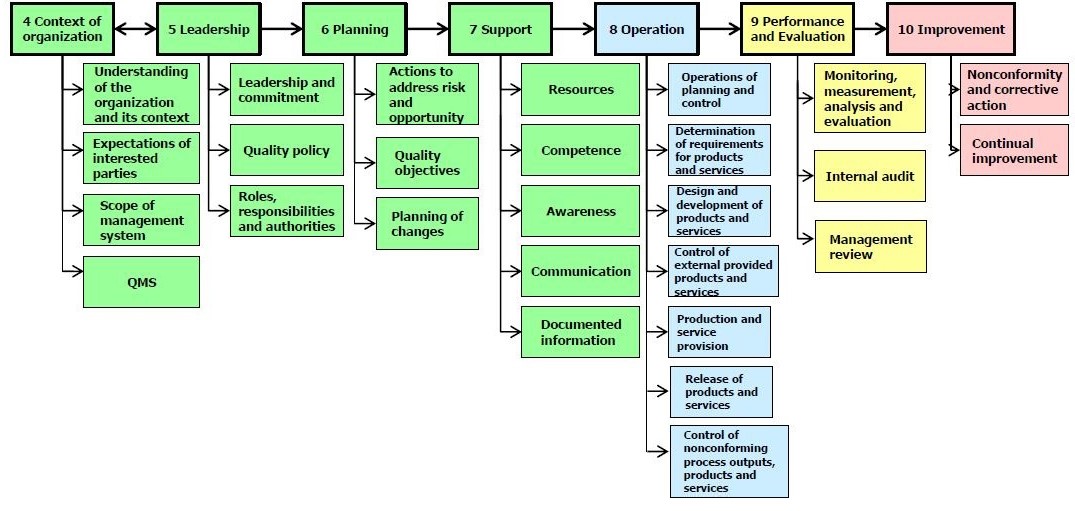Management system: Difference between revisions
Jump to navigation
Jump to search
No edit summary |
(→Notes) |
||
| (26 intermediate revisions by the same user not shown) | |||
| Line 1: | Line 1: | ||
= Definition = | = [[Definition]] = | ||
A management system is | A management system is et of interrelated or interacting elements of an organization to establish a [[policy]] and [[objective]]s, and processes to achieve this [[policy]] and these [[objective]]s. | ||
<ref> ISO 9000 (2015). Quality management systems – Fundamentals and vocabulary.</ref> | |||
= | =[[Abbreviation]]s= | ||
MS | MS | ||
= | =[[Note]]s= | ||
ISO has developed a structure for management systems in general, which is applied in multiple domains, such as quality, environment and information security. | ISO has developed a structure for management systems in general, which is applied in multiple domains, such as quality, environment and information security. This is called the high-level structure (Annex SL). | ||
<ref>Wkipedia. [https://en.wikipedia.org/wiki/Annex_SL Annex SL.]</ref> The figure below shows the elements in the high level structure for management systems. A standard has been developed for a [[knowledge management system]] ([[ISO 30401]]} too. | |||
[[File:HighLevelStructure.jpeg]] | |||
=[[Reference]]s= | |||
= | |||
[[Category:All]] | [[Category:All]] | ||
Latest revision as of 17:00, 30 December 2022
Definition
A management system is et of interrelated or interacting elements of an organization to establish a policy and objectives, and processes to achieve this policy and these objectives. [1]
Abbreviations
MS
Notes
ISO has developed a structure for management systems in general, which is applied in multiple domains, such as quality, environment and information security. This is called the high-level structure (Annex SL).
[2] The figure below shows the elements in the high level structure for management systems. A standard has been developed for a knowledge management system (ISO 30401} too.
